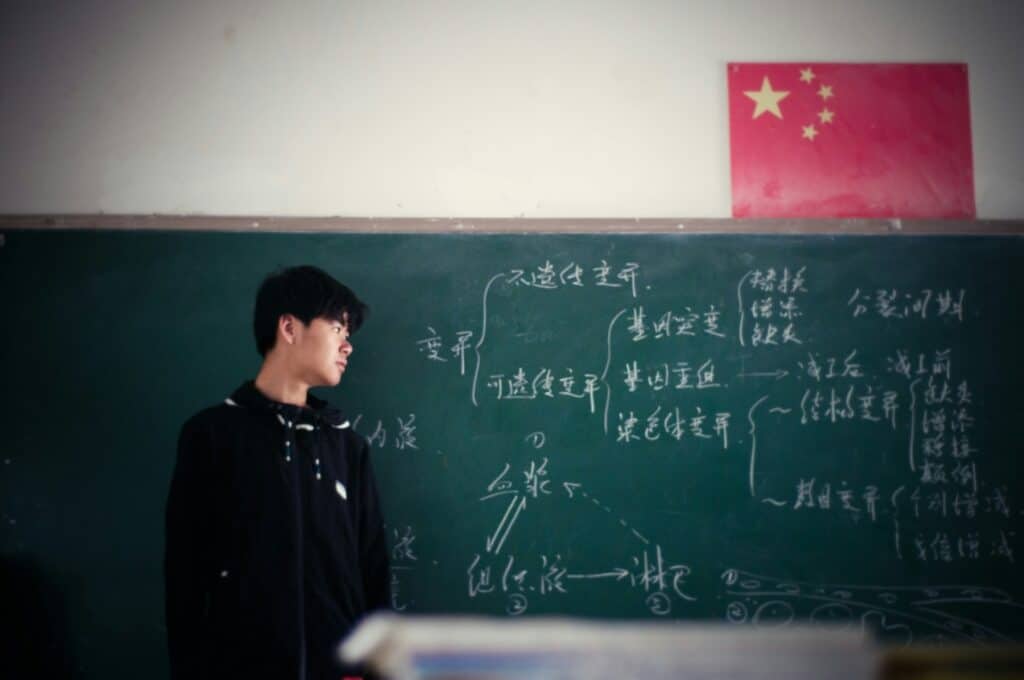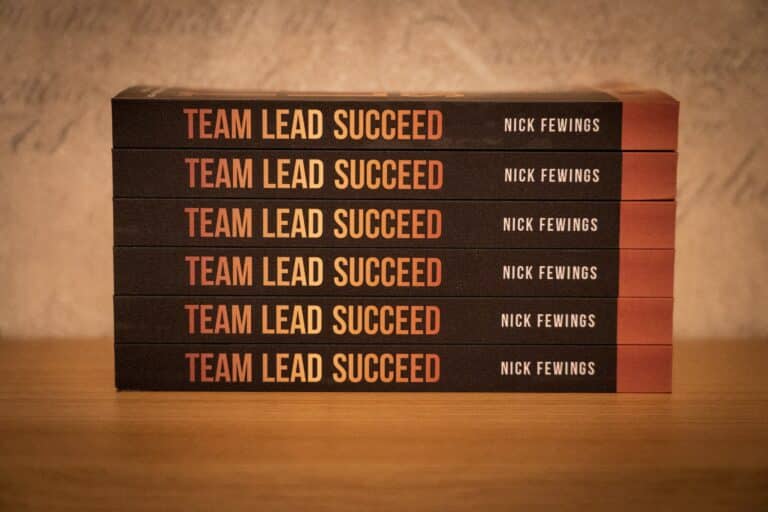In our quest to learn more, do more, and be more, our minds often become cluttered, leading to decreased focus and learning effectiveness. But what if we could master our focus, and create the perfect learning environment for success? The answer lies in understanding and optimizing lesson lengths, and that’s precisely what we’ll discuss in this article.

The key to unlocking your full learning potential isn’t about cramming more information into your brain 🧠, it’s about fine-tuning your focus and using time efficiently to promote deep, meaningful learning. Welcome to your ultimate guide on mastering focus by finding the perfect lesson length for optimal learning success.
Throughout this article, we’ll delve into the science behind focus and learning, demystify the concepts of cognitive load and information overload, and provide practical strategies for optimizing your learning. We’ll also address common misconceptions and answer key questions. How long should a lesson be for maximum learning effectiveness? How can you harness the power of focus to learn more effectively and retain more information? And how can you balance the need for comprehensive learning with the realities of a busy schedule? 📆
🔬 The Science Behind Focus and Learning
Our journey begins with a look at the science of focus and learning. Just as an athlete needs to understand the mechanics of their body to perform at their peak, a learner must comprehend how their mind works to optimize their learning. We’ll explore cognitive psychology’s latest insights, shedding light on how our brain processes information and how this understanding can help us find the perfect lesson length.
🧠 Cognitive Load and Information Overload
Ever felt overwhelmed after an intense learning session? You’re not alone. The concept of cognitive load refers to the amount of mental effort required to learn new information. Information overload happens when this load exceeds our cognitive capacity. But fear not, there’s a way to work with this and not against it. Our goal? To optimize lesson lengths to avoid cognitive overload, enhancing focus and promoting effective learning.
⏱ Practical Strategies for Optimizing Your Learning
Armed with an understanding of how our minds work, we’ll dive into practical strategies for optimizing your learning. From the Pomodoro Technique ⏲️ to the concept of ‘chunking’ information, we’ll explore tried and tested methods that can help you improve your focus and learn more effectively. We’ll guide you in choosing the right strategy for you, based on your personal learning style and schedule.
We’ve all heard the saying, “Time is of the essence,” and in the realm of learning, this couldn’t be truer. Understanding how to manage and optimize your time is a critical aspect of mastering focus and achieving learning success. Here, we’ll show you how to find the sweet spot for lesson length to ensure you’re making the most out of your time spent learning.
So, are you ready to start your journey towards more focused, effective learning? Whether you’re a student aiming to ace your exams, a professional striving to stay ahead of the curve in your field, or a lifelong learner eager to broaden your knowledge 🎓, this guide will provide you with the insights and strategies you need to optimize your learning, enhance your focus, and achieve success. Let’s get started!
🔍 Understanding the Art of Concentration for Optimal Learning
Let’s delve into the fundamental understanding of concentration before we can discuss the perfect lesson length for optimal learning. Concentration, in its simplest form, is the mental effort you direct toward whatever you’re learning at the moment. A profound understanding of this concept can significantly enhance your learning ability. To get a better grasp of this subject, I recommend the following YouTube video, titled “The Science of Concentration” by the channel “SciShow”. It provides a comprehensive breakdown of the process of concentration from a scientific perspective.
Concentration is a critical component in the learning process. It allows us to internalize and assimilate information more effectively. However, maintaining a high level of focus can be challenging. Multiple factors, including the complexity of the subject matter, our physical and emotional state, the environment, and the length of the learning session, influence our ability to concentrate.
Therefore, finding the perfect balance is crucial for optimal learning. Too short a lesson may not offer enough depth, while an excessively long lesson can lead to cognitive overload and impair learning. In the following sections, we’ll explore how to strike that balance.
📏 Finding the Perfect Lesson Length: What Does the Research Say?
Many studies have attempted to find the ideal length for learning sessions, with varied results. Some research suggests that the average adult can maintain focus for approximately 20 minutes, while others argue that concentration can be sustained for up to 45 minutes or more. However, most of these studies agree that after a specific threshold, the ability to absorb and retain information diminishes.
The variability in findings can be attributed to factors such as the complexity of the task, the learner’s level of interest in the subject, and their overall cognitive capacity. For instance, learning a new language might require shorter, more frequent sessions compared to studying historical facts.
For a comprehensive overview of the research, check out the YouTube video titled “The Science of Learning: How to Gain More Focus, Absorb More Information, and Learn Faster” by the channel “Thomas Frank”. This video provides a detailed explanation of the psychology of learning and highlights key research findings on the ideal lesson length.
💡 Crafting the Perfect Lesson: A Balancing Act
Knowing that there’s no one-size-fits-all when it comes to the perfect lesson length, the challenge lies in striking a balance that suits the learner’s needs. We need to consider the learner’s age, cognitive ability, subject complexity, and even the teaching methodology. But how can we do that? Let’s break it down.
First, it’s important to chunk the learning material into manageable parts. Breaking down complex topics into smaller, more digestible pieces can enhance understanding and retention. This strategy is supported by a theory called “chunking,” which suggests that our working memory can only hold a limited amount of information at any given time.
Second, incorporating regular breaks into the learning session can be beneficial. Breaks offer a respite from the cognitive effort of learning, allowing the brain to consolidate the information it has absorbed. A popular technique for this is the Pomodoro Technique, which suggests breaking your work into 25-minute segments followed by a short break.
Comparing Different Lesson Lengths
Let’s compare the effects of different lesson lengths on learning, using a table:
| Lesson Length | Advantages | Disadvantages |
|---|---|---|
| Short (15-20 minutes) | Maximizes focus, promotes better retention, flexible and manageable | May not allow for deep learning, frequent breaks may disrupt the flow |
| Medium (30-45 minutes) | Allows for in-depth learning, balance between focus and fatigue | May require more cognitive effort, potential for decreased focus towards the end |
| Long (60+ minutes) | Facilitates extensive coverage of topics, less disruptive | High potential for cognitive overload, sustaining focus can be challenging |
From the table above, it’s evident that each lesson length has its pros and cons. Therefore, it’s important to adjust the lesson length based on the nature of the subject matter and the learner’s capacity.
🛠 Tools to Help Master Focus and Optimize Learning
Several tools can help enhance focus and optimize learning. These tools can be especially useful for online learners or those studying independently. Some of these include focus apps like Forest or Be Focused, which use the principles of the Pomodoro Technique to encourage focused learning sessions.
Furthermore, learning platforms like Coursera or Khan Academy offer lessons in bite-sized modules, allowing learners to progress at their own pace. Finally, mindfulness and meditation apps like Headspace or Calm can also support concentration by promoting mental clarity and relaxation.
To get a more practical understanding of these tools and how they can enhance learning, I recommend watching the YouTube video titled “Study With Me: Best Apps for Productivity 📚✨” by the channel “Nina Lauren”. This video showcases some of these tools in action, providing a real-life perspective on their effectiveness.
🚀 Setting Yourself Up for Success: Tips for Optimal Learning
Mastering focus is not merely about finding the perfect lesson length but also about creating the right learning environment. Ensure that your study area is free of distractions, comfortable, and well-lit. Also, consider incorporating some form of physical activity into your study routine, as research shows that exercise can boost brain function and concentration.
It’s also essential to maintain a healthy lifestyle, including getting adequate sleep, eating nutritious food, and staying hydrated. Remember, our brain functions best when our body is in its best state. Lastly, be patient with yourself. Mastering focus and optimizing learning is a journey, not a destination.
To get a more in-depth look at creating a conducive learning environment, check out the YouTube video titled “How to create the perfect study environment” by the channel “Learn English with Emma [engVid]”. This video offers practical tips on setting up a productive study area.
💡 Final Thoughts
Optimizing learning involves a delicate balance between maintaining focus and preventing cognitive overload. While finding the perfect lesson length is a key part of this process, it’s equally important to consider other factors like the learning environment and the learner’s overall health and wellbeing.
With the right strategies and tools, you can enhance your focus, optimize your learning sessions, and set yourself up for success in your educational journey. So, keep exploring, keep learning, and remember – the key to mastery lies in the art of focusing.
Conclusion
In this comprehensive exploration of the topic, we have traversed through the intricate maze of Information Technology (IT) and engineering concepts. Breaking down these complex topics into digestible chunks, our journey has spanned from understanding the crux of the matter to delving into the depths of its application and impact.
We started our exploration with the foundational principles, establishing a solid base from which we could delve into more complex aspects. These foundational principles, though they may seem simple at first glance, form the bedrock of our understanding. Without a firm grip on these, it would be impossible to comprehend the intricacies that come later.
From there, we journeyed into the heart of the subject, unpacking complex concepts and exploring their various facets. As we ventured further, the labyrinthine nature of IT and engineering unfolded before us. Each turn in the maze revealed new insights, shedding light on concepts that are not only intellectually stimulating but also hold profound practical implications.
Navigating through this labyrinth was not an easy task. The sheer complexity and breadth of the subject demanded not just technical knowledge but also the ability to convey this knowledge in a manner that is comprehensible to all. It required striking a delicate balance between technical jargon and plain language, making sure that the essence of the topic was not lost in translation.
As we reached the end of our journey, we took a moment to reflect on the journey we had embarked on. We looked back at the milestones we had crossed, the obstacles we had overcome, and the knowledge we had acquired. This retrospective view allowed us to consolidate our understanding, reinforcing the key points that we had covered.
In closing, the importance of understanding and mastering these complex IT and engineering concepts cannot be overstated. They form the foundation of our digital world and influence every aspect of our lives, from the way we work and communicate to the way we entertain ourselves and conduct business. Mastering these concepts allows us to harness the power of technology, turning it into a tool that can solve problems, enhance productivity, and improve the quality of life.
As we bid adieu, I encourage you to reflect on the journey we have undertaken. Take a moment to assimilate the information, revisit the key points, and explore the areas that intrigue you. Your feedback and insights are highly appreciated, so feel free to comment and share your thoughts. Your engagement not only enriches the discussion but also helps in spreading knowledge and fostering a community of learners.
If you found this article helpful, please share it with your peers and network. You never know, you might inspire someone to embark on their own journey of learning and exploration.
And finally, don’t forget to apply what you’ve learned. Knowledge is power, but only when it’s applied. So go ahead, explore the world of IT and engineering, create, innovate, and make a difference. Because in the end, that’s what it’s all about.
Thank you for joining me on this journey. Until next time, keep learning, keep exploring, and keep making a difference. Remember, the world of IT and engineering is vast and constantly evolving. So stay tuned for more insights, more exploration, and more learning. 🚀
References:
– [Link 1](http://www.example.com)
– [Link 2](http://www.example.com)
– [Link 3](http://www.example.com)
🔬🚀🛠️
<!–more–>
<!–more–>
Tags: #IT, #Engineering, #Learning, #Exploration
<!–more–>



